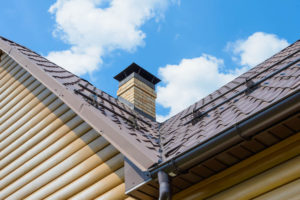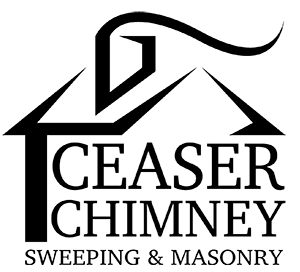There are many different components to your fireplace system, and each plays a role in keeping your fireplace safe. Now that springtime is here, the last thing you want to think about is your chimney’s condition. Springtime is actually the best time to make sure that your fireplace is up and running so that you are ready next fall. The pleasant weather is perfect for repairs and ensures that your chimney is safe for an inspection.
Chimney Inspections
Spring is the best time to hire Ceaser Chimney Service, LLC to come in and do a thorough inspection and cleaning of your chimney. It’s a great time to clear out the creosote and soot, and also to check to make sure that there isn’t any damage to the interior of your chimney. If creosote sits in your chimney, it can cause odor, especially during a wet spring season. This odor can flow down the chimney and permeate the interior of your home, even getting into the cushions of your furniture or your carpeting and drapes. The best way to avoid this is by getting it cleared out, and we’re the best company to do just that. We have the proper tools and lots of experience to know just what to look for and how to take care of any problems that we find.
Chimney Caps
Another thing that we’ll be looking at when we come in and do your inspection is your chimney cap. Your chimney cap plays a very important role in keeping your chimney leak-free. The chimney cap sits on top of the chimney crown and is designed with a sloped roof which keeps the rain out of the chimney and directs any precipitation down to the chimney crown, where it is directed away from the junction where the roof meets the chimney. The sides of the chimney cap are uniquely designed, with grated metal sides that let the smoke escape into the great outdoors while keeping birds, animals, and leaves, twigs, and other debris out.
Why is it a big deal if critters or debris get in your chimney? Because these things can cause blockages to occur. Even if you don’t mind the chirpy noises from hungry baby animals, and if you know that the smell from animal droppings won’t last that long, the nest that gets left behind can cause a fire hazard when you start burning fires again. The same is true for the dried twigs, leaves, and paper that might blow into your chimney. All it would take is a spark from a fire to ignite these into a damaging chimney fire. These blockages can also make for less air flow through your chimney, making it more difficult to burn a steady, hot fire.
Let the experts at Ceaser Chimney Service come in and inspect your chimney cap. If you need a new one, we can offer plenty of choices to find one that is perfect for your home.
